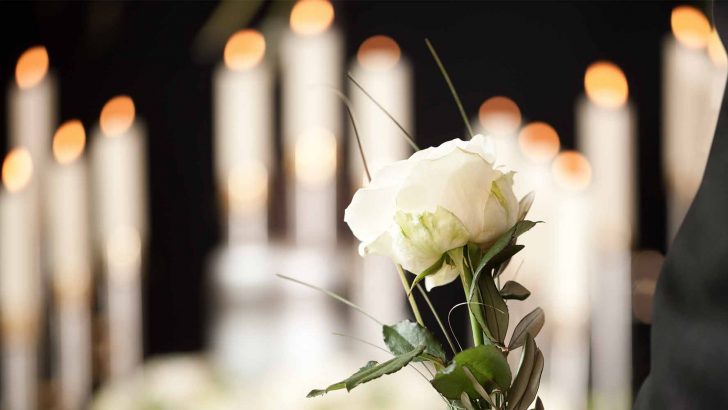My dear father, Joseph Louis Conroy, Joe to most of his family and friends, died a month ago. No matter what age a parent is or how long they’ve been battling illness, whether sudden or unexpected, nothing prepares you for that final farewell.
Although my father had been diagnosed with cancer some years ago, had a kidney removed and several surgeries, he led a full active life. A few weeks before his death, he was still driving to daily 10am Mass in his red Renault Megane. There was nothing in life that could stand between my father and his relationship with God.
As a child, I remember looking at his strong hands with their very visible veins, hands that were regularly clasped in prayer. My father was a teacher, the principal of a country school where my siblings and I were privileged to receive his kindly instruction.
Ahead of his time, he was progressive in his approach to teaching and always child-centred, even when more old-fashioned attitudes to education still prevailed. His classroom skills were mirrored in everything he did in his life where he viewed each person as worthy of his respect, affection and time.
Heartening
In the days after my father passed away, it was heartening to hear the many stories about his warmth, his ability to put people at their ease and his gentle grace. He was, in every sense of the word, a true gentleman. I can still hear his simple response to people who needed help: “I’ll pray for you and you pray for me.”
In John Green’s novel The Fault in Our Stars, there’s a line by one character: “Grief does not change you, Hazel. It reveals you.”
When a loved one dies, there are all sorts of conflicting feelings and emotions to deal with. Until you lose someone close to you, it’s impossible to predict how you’ll react. Dealing with death and grief is not some neat, nicely-ordered process. It’s raw, ragged and painful, and no two people cope with it in the same predictable manner.
For me, the days after my father’s death almost seemed unreal. While others shed bitter tears, I felt removed from the reality that my Dad, who’d always been there for me, wasn’t going to be around anymore.
I’d been diagnosed with cancer myself a few months earlier and my father had been a rock of strength and support even though he had his own condition to worry about. I felt lost, alone and a bit cheated.
My younger sister and nephew lived with my father. Their loss was more traumatic and heart-rending as they were immediately dealing with the absence of my father’s presence in the home – the empty chair as it’s often referred to. Dad sometimes seemed to be quiet depending on the company but once he started on a favourite topic, there was no stopping him.
Even simple things like his daily enquiries about how my sister’s work day went are sorely missed.
Children’s experience of grief and mourning is often very different to adults. They need help and guidance at this difficult time in their lives. Even the initial stages of grieving where they are taking in and adapting to the simple fact that a significant person in their life won’t be there is a challenge.
For small children there can be a level of denial; my five-year-old son wouldn’t believe that his granda was dead until he was brought over to my father’s house where he whispered “He really is dead!” and after an initial wariness was eager to hug my father for the last time.
Preparation
Children are not too young to be involved in the preparation for a family member’s funeral. The rituals around death are all part of the healing process and children learn from adults and feel more secure and less confused when they aren’t excluded.
Grief can sometimes be invisible; a child who seems aloof or distant from what’s happening may create the impression that they are coping well only to have a complete meltdown weeks or months later.
In the midst of all the tears and heartbreak, for Christians there is, as described by the priest at my father’s funeral Mass, a palpable sense of hope.
My father often wrote little notes in the margins of whatever he was reading or studying and in his many prayer books. These, and the diaries he diligently kept for over 50 years, are sprinkled with a practical spirituality that we can pass on to our grieving children. They paint an image of a man who really put his faith into practice; who even in his eighties felt that evangelising was still his business, using his bedroom as his base to send carefully crafted letters to the papers.
He never had a letter that wasn’t printed in at least two newspapers reaching thousands of readers.
At my father’s month’s mind Mass, Archbishop Charles Brown spoke of the preparation for the world that is yet to come, our heavenly home.
There was no better tribute to my father, no better legacy to his life than the sea of faces attending that Mass: his children and grandchildren united in grief but filled with hope. It was a hope based on the knowledge that their father and grandfather had fought the good fight, run the race to the end and kept the Faith.


 Maria Byrne
Maria Byrne